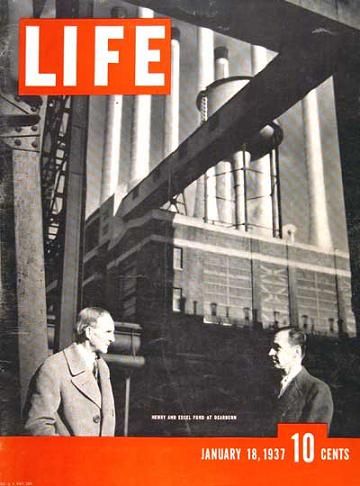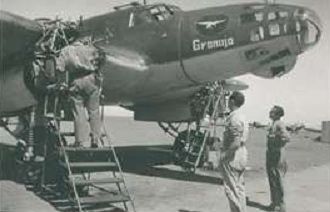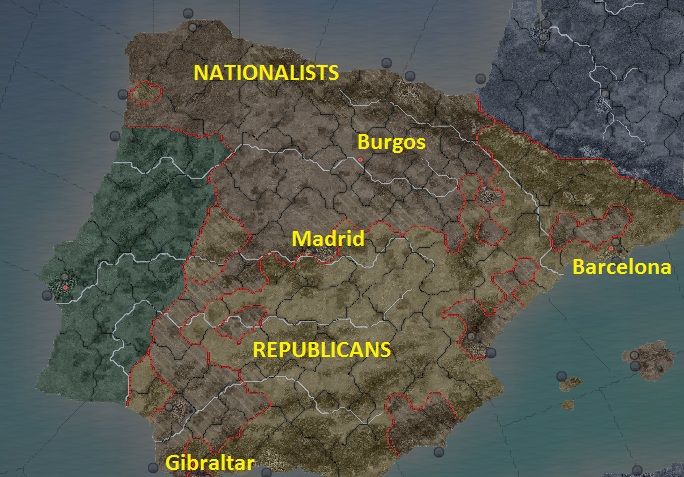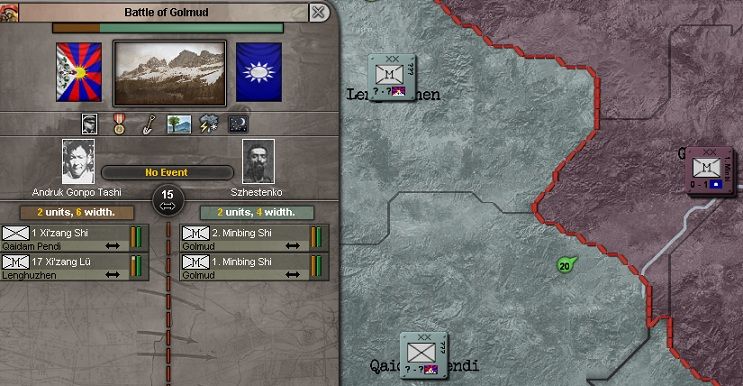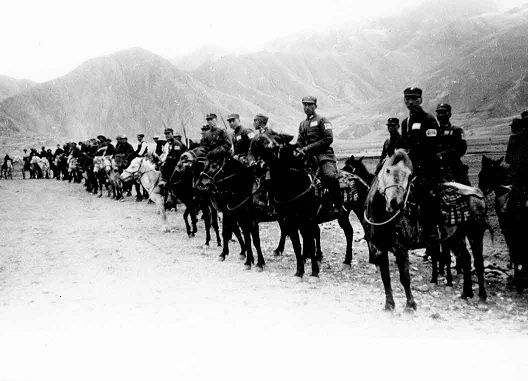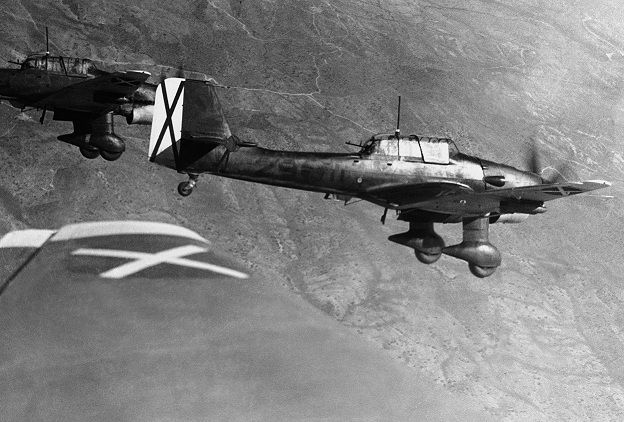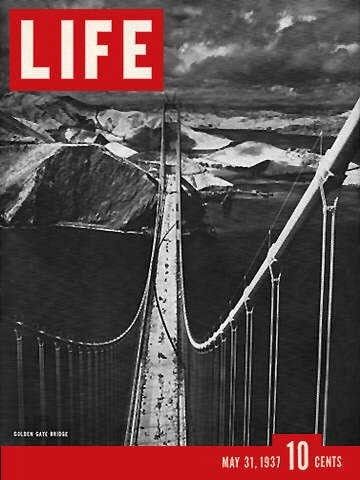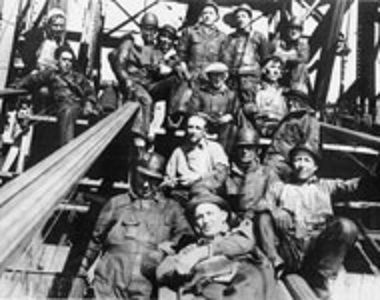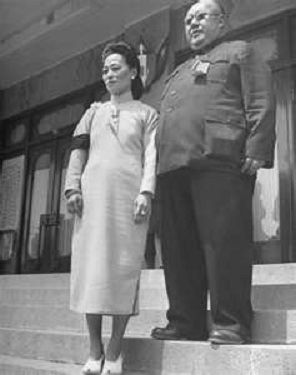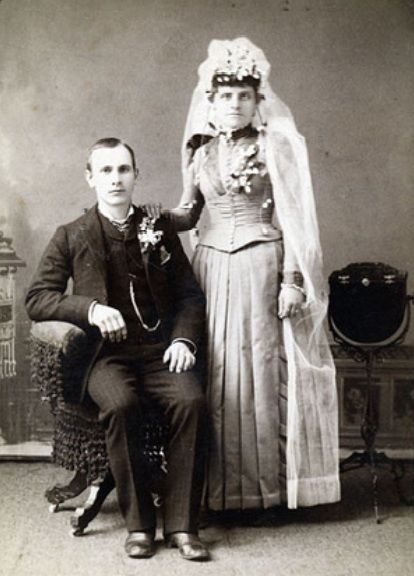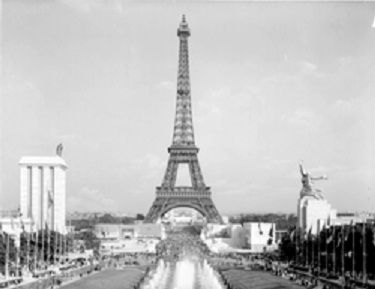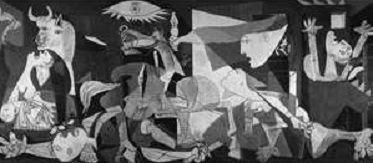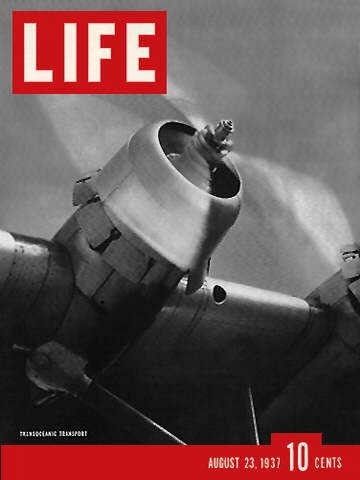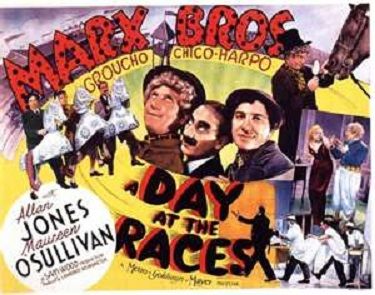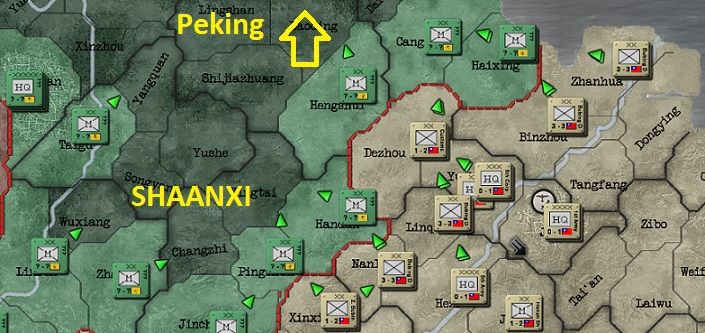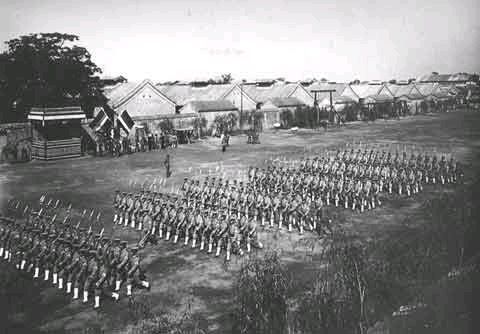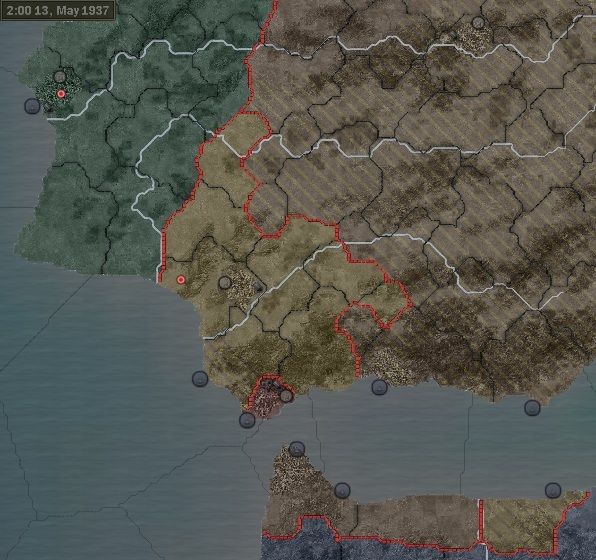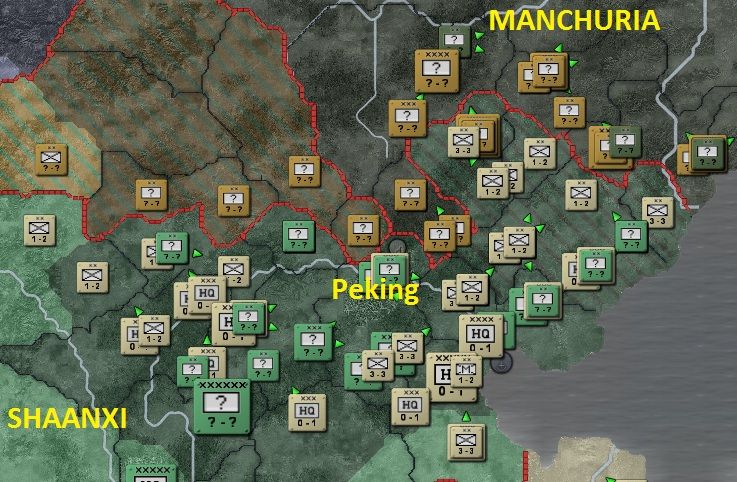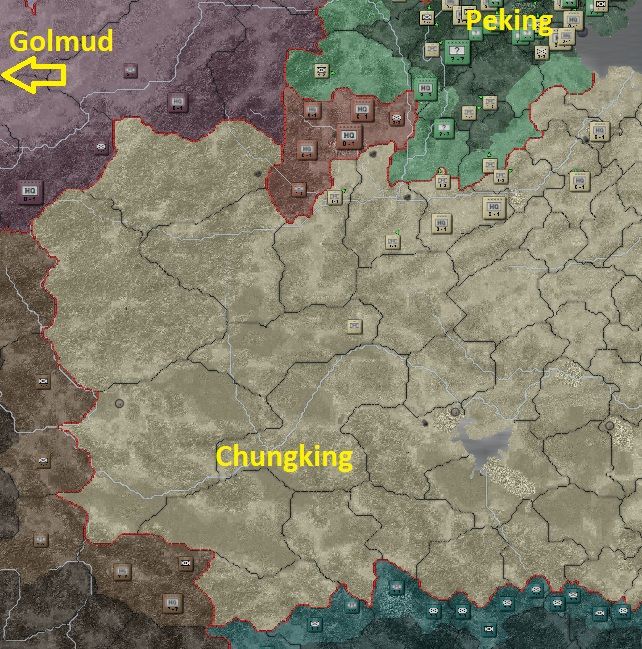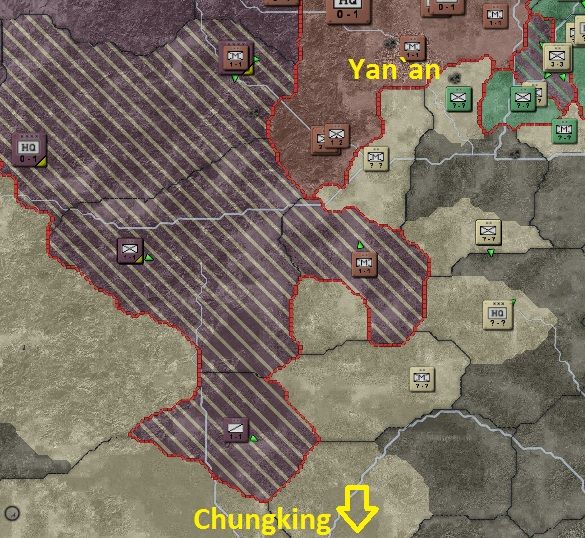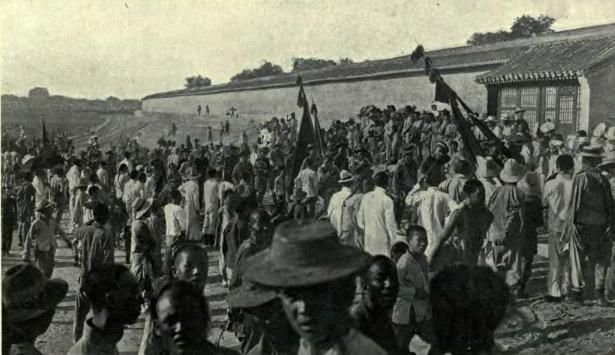[size=+1]
1937, Summer - A Series of Unfortunate Events
[/size]
[size=-2]August issue highlighting Transatlantic travel[/size]
4 July: So much has happened today that I don’t even know where to begin, although `begin at the beginning` is usually sound advice. Nearly all the expats were down at The Americaine to have impromptu celebrations of sorts for the Independence of the United States. The main activities focused on lots of drinking (of course) and we were able to catch the latest Marx Brothers movie that had come out last month back there. This one has Groucho playing a horse doctor who ends up becoming the head of a regular hospital. Naturally, hijinks ensue. The Marx Brothers are always good for laughs, but I am more of a Chaplain man, myself. Of course, my mother is the *real* Chaplain fan in the family.
[size=-2]Movie poster from A Day at the Races
(image courtesy MGM studios)[/size]
After the movie we were doing more drinking and listening to music on the wireless when an announcement came in that Amelia Earhart, the famous aviatrix, was officially missing. Earhart was following in the footsteps of Wiley Post, who was the first man to fly around the world with his navigator Harold Gatty back in June of `31, and then became the first man to fly solo in July of `33. Earhart was travelling on what was likely the most dangerous leg of her journey with navigator Fred Noonan. The leg started in New Guinea and was to end at Howland Island in the Pacific. I had to pull out a map to see where exactly Howland Island is, as I’d never heard of it before. It lies almost dead center on a line between New Guinea and Hawaii and perhaps a bit south of that line. Certainly a very dangerous location to be in if you are low on petrol as there is nowhere else to go should you fail to find the island
[size=-2][1][/size].
Earhart has had quite an impressive career, although one that perhaps didn’t quite develop as she might have wished. She married her promoter, George Putnam, and he has done his best to keep her face in the news as much as possible. I remember back in `28 there was much made in the papers of her being the first woman to fly across the Atlantic, even though she was actually just a passenger and the whole trip was arranged as a publicity stunt. She did do the flight solo herself though in `32 which made her not only the first woman but only the second person after Colonel Lindbergh to make the trip solo. I would guess that she might have been happier if her career would have remained focused on her real achievements and not the corny headlines drummed up by Putnam. I think he even had her endorsing automobiles at one point, with some sort of oddball name like the `Terraplane` or some such.
Based on what happened later in this same evening, there was some talk in the public house that perhaps the Japanese could be suspected of some sort of foul play, but that is all wild supposition at this point.
No sooner were we discussing this piece of news than we had another shock. The newscast on Earhart was interrupted by a local emergency announcement. The Japanese Army stationed in Manchuria has garrisons that are literally right outside the gates of Peking. Their camp is across a bridge that is known as the Marco Polo Bridge
[size=-2][2][/size] in the West but is known as Lugouqiao to the Chinese, which means `Moon Over the Lugou Bridge at Dawn`. The newscaster was very unclear on the details of what happened, but the summary of it all is that some sort of flare-up between the rival garrisons at Peking is escalating into full-scale war. The announcement concluded with Chiang addressing the nation with a statement that further Japanese aggressions toward China will no longer be tolerated and the new watchword is resistance to the last man.
I can’t see how this is going to go well. Peking is at the edge of Shaanxi province, which is another of these areas that is largely self-governing. So troops under Chiang’s direct control are stationed well away from the new front lines. I believe that the forces in Shaanxi province proper have also been badly laid out for an attack against Japan. The Empire has several advantages going for it in a wider war with China. While some of the industry is located in the western regions, most of China’s population is concentrated in the river deltas and the coasts, and most of the best farmland is along the major rivers, too. Thanks to its naval power, which is known to be formidable, Japan should be in a position to seize these areas quickly. In a long-term war, Chiang will likely be forced to retreat to the west and hole up in the mountains. He could conceivably defend these areas for a long time, but being on defense doesn’t necessarily win wars. The plan would have to be that the Japanese would give up, but you can ask the Koreans and Manchus how well that plan works.
[size=-2]Chinese forces were unprepared to face Japanese aggression[/size]
The biggest short-term worry is the potential loss of Peking. With the Japanese Army in such proximity the city will effectively be under siege immediately. With a bold attack it might fall into their hands before I even finish writing this. Needless to say, the mood quickly soured in the public house and the military men who were there departed right away to get back to their posts. Konrad decided to shut down early tonight.
5 July: A formal announcement came in on the wireless that Germany has signed a treaty of alliance with Japan. The diplomat who made the pronouncement talked about the Berlin-Tokyo Axis about which the world will turn, which sounded silly to me since those cities don’t lie on a line about which the world *could* turn. A needless quibble, I’m sure, but it bothers me as a writer! This treaty is a bit odd for a couple of reasons. Firstly, it goes against the strong traditions of Sino-German cooperation that have been running since the Great War. I would be willing to bet the government in Berlin didn’t consult their own businessmen before they made this deal. This leads me to suspect also that Berlin must be convinced that Japan will either defeat Chiang quickly, or else that Japan can act as a bulwark in the east in case Stalin takes some unexpected action. That ties into the other reason I find this alliance odd, since Germany and Japan are not in any sort of position to help each other militarily in any real capacity. About all they can do is attack the USSR from both sides if some sort of general war breaks out.
If I was going to add a third reason from the German point of view, it would be that this is bound to start souring their relationship with the United States. The Western powers have been full of criticism ever since Japan moved into Manchuria back in the early 30s (which led to Japanese withdrawal from the League of Nations). So far of course it has only been just criticism, but now this will attach to Germany as well by association. I mentioned before that the States are limiting their exports of materiel like helium... if Japan becomes the subject of a wider embargo, Germany will likely get the same. Again, not a move that is likely to be in their best long-term interests.
18 July: Recruitment notices have been going up around town to encourage men to join the infantry, so it looks like the Mas are finally committing to getting some more boots on the ground, as it were. I managed to get a nice shot of the training camp that was erected outside of town, but the negatives must have already been spoiled somewhat before I even stuck the film in my camera, as the quality of the pictures I developed was way below what I’d need to get them used in LIFE. The expats at The Americaine said they looked fine, but they’re not photographers. Maybe I am being too hard on myself but it seems like I should have been able to get the photos to be crisper.
[size=-2]New infantry recruits training near Golmud[/size]
While I was lamenting the state of my shots, Paddy came in with a crumpled telegram in his hand and a sad look on his face. After we got a beer in him it didn’t take much prompting to find out what was going on. It turns out Paddy is in love with a lady named Kathleen (it seems every Irish lady is named Kathleen, Colleen, or Bridget) whose parents also ended up in Pennsylvania after leaving Ireland when the War ended. Most of his love has been unrequited as Kathleen’s parents didn’t feel he earned enough money to be able to woo her. Part of the reason he took this assignment to come out to Golmud was to earn enough extra cash to be able to convince her father he was worthy. Apparently he struck a deal with the father that if he came up with enough bread to buy a house, the marriage would be allowed. All to the good so far, but now Paddy has just received a wire informing him that the family has received some kind of ancestral inheritance and are packing back up to move back to Ireland. He was clearly not in a mood to be consoled so we let him off by himself to drown his sorrows.
2 August: General Franco announced the end to the Civil War in Spain with a victory for his Nationalist forces. This comes as no surprise since the war was clearly over back in late May, with the Republicans holding only a small area near Gibraltar.
[size=-2]Franco formally announced victory, but the war was long since over[/size]
What happens next will be interesting. Franco’s principles align closely with the other authoritarian governments sitting in Berlin and Tokyo, so he seems like a perfect candidate to join their new `Axis` alliance. But Spain is largely in ruins following the war and it will need years to recover. Also, aside from the issue of Gibraltar, Spain has no particular axe to grind with the other major European powers such as France or the United Kingdom. If Franco allows himself to be pushed into a major war with them, the British could land at will anywhere along the Spanish coast while the French tie him down in the Pyrenees. I would suspect that if he is indeed recruited by Berlin, that it only happens at a point where the democratic powers are clearly in a losing position.
5 August: Chiang seems to have managed to stabilize the front, and not only that, pushed up a little into Manchuria using Peking as an anchor. It seems remarkable that the Japanese weren’t able to take this city on the first day of the war. This advance has come at a price, however, since it took every available division he had. Well, not quite every available division, because none of the men serving under the Mas have moved one centimeter! I’ve been able to use my association with Chiang and the Mas to get myself into meetings with quite a few of the top commanders in the area and what they have to say surprised me quite a bit, needless to say. It seems that Chiang has been sending telegrams back to Golmud for the last three weeks ordering the Mas to advance to the east and has been given no reply. And yesterday, a Colonel from his General Staff arrived in person to make the same request. The Colonel has been detained indefinitely but the commanders I spoke to couldn’t say why. They did say that they have been ordered to be ready to move out and are just waiting for the signal from Ma Buqing to do so.
[size=-2]Chinese armies have acquitted themselves well in the first month of war[/size]
10 August: I’m sleeping in a tent with Ma Bufang himself. After talking with the other commanders who assured me that some kind of action was due to take place soon, I went back and wrangled a meeting with Ma Hongkui. I asked him to attach me to a front-line unit so I could directly record the war against Japan. For some reason this made him laugh out loud, but he said he would grant my request. As a compromise between safety and being right at the front where I wanted, he placed me with Ma Bufang’s staff. Bufang has taken command of a two-brigade Cavalry division and is currently sited right at the edge of Ma territory, as are all of Buqing’s troops that aren’t screening Golmud from the Tibetans. I wouldn’t say I have any kind of a death-wish, but I feel badly about how I acquitted myself in the earlier battle and would like a chance to do better. I also sincerely feel that if these men are willing to risk their lives somebody should be there to tell their story. Jie seemed to get really upset when I told the regulars at The Americaine I would be gone for a while on the road. That response elicited little sympathy from the other men there and she was treated to a lot of eye-rolls and snickers. I felt terrible but was in too much of a hurry to get back to my hotel and pack to deal with it.
25 August: Our Cavalry division is racing to the south, with the Republic of China our enemy! Our immediate target is to reach Chungking. As the Cavalry forges a path ahead, the Infantry will back-fill the regions behind us to create a defensible line. The strategic goal is to slice off western China from Chiang’s control and form the anvil to the Japanese hammer. Chiang will be forced to fight a two-front war and gradually be squeezed out. This move surprised me, to say the least, although the signs of this betrayal were all there, going back months if I had been more observant. I had a brief discussion with Bufang this morning as he confided in me what our orders were just before the Cavalry moved out at dawn. I’ll try to jot down what I remember...
[size=-2]Chiang sent everything he had right at Japan, leaving him open for betrayal[/size]
`Chiang is weak and unfit to rule. In olden times we would say he has lost the Mandate of Heaven. He sends his generals like my brother and I out to fight his wars while he keeps the spoils of those wars for himself. `
`And Ma Hongkui has it, then? `
`It is never a question of having it so much as seizing it. Ma Hongkui has shared with us the full accounting of how much of the money that America sends to China ends up in Chiang’s hands alone. There has been discussion before on supplanting him, but the time has never been right. Chiang has ruled very cleverly. He gives each governor just enough power to do what needs to be done, but not so much that Chiang could not defeat them if they rebelled. And the governors will not consolidate to rise up against him since each one would want to be ruler if he could. With this new war going against Japan, there will not be enough forces left behind to confront us. The time is ripe. `
`But doesn’t that leave Hongkui facing off both Chiang *and* the Japanese? `, I felt compelled to ask.
`No. Hongkui has been making many secret trips to Peking to have discussions with the Japanese ambassador there. He has managed to convince them that attempting to take all of China is a fruitless task. They will get the coasts, of course, but they would be years fighting their way all through the west, and there is simply not enough here to make the task worthwhile. All of China’s finest cities are in the east. The Japanese care only for what will make them a great economic power which can surpass the nations of the West. Fighting their way to Golmud will not give that to them. `
Of course, I wasn’t done playing Devil’s Advocate: `How then is China any better off being ruled by Japan than ruled by Chiang? `
`Ma Hongkui is convinced it will not come to that. Much of China’s industry is located here in the western provinces, including Chungking, where we will make our base. Once we sweep up this territory, Chiang will see that it is hopeless and turn over control of the Republic to us. While the Japanese might have such places as Peking and Shanghai in their hands, most of China will still in fact be ours. We can then start the great task of reclaiming all of China- Manchuria, too, from the Japanese. Of course, even if you published this, we would just denounce it as lies, but the Japanese will know it to be true. Hongkui doesn’t expect them to honor any agreements any more than we expect them to. There is no honor among thieves when nations are at stake. If I used boxing terms, I would say we will divide up China between us in round one, and then look for the knockout blow in round two. But the advantage is ours. We know that in any great struggle between China and Japan the Western powers will support China. So even if we are the weaker, we will be able to call in powerful allies. We have had many discussions on this topic and our ultimate success is certain. ` Seeing my somewhat incredulous face he smiled and slapped me on the shoulder. `Just think, Terry, you can be the one to help chronicle China’s resurgence as the power she deserves to be. But first we ride! `
17 September: So far there has been no military action taken against us in our ride to the south, for which I am thankful. Ma Buqing timed the betrayal for a moment when Chiang would be entirely committed to facing off the Japanese. There is no strategic reserve anywhere in the country, so any division that comes back to face Ma troops is one that has to be pulled directly away from the fighting against the Japanese, which will only make Chiang fold the faster. And clearly the faster he folds the better it will be for China, since under their agreement with the Mas the Japanese will stop advancing (well, until they decide to betray China again, anyway). We’re closing on Chungking and should reach it soon.
[size=-2]Our division is nearly in reach of its goal[/size]
In every major town we pass through the troops post some broadsides announcing that Ma Hongkui is now the lawful head of the Republic of China, and that any orders coming from Nanking are to be ignored. They also clip the telegraph wires running east to help slow down communications.
[size=-2]Chinese peasants queue to read the news about their new masters[/size]
The peasants I’ve spoken to have taken the news with a lot of
sang-froid as we say in French. Since the fall of the Qing dynasty such notices are common enough and have made little difference in their daily lives. Unless their situation actually improves many of them could care less what the man on the throne calls himself. Most of them are worried however about an invasion by Japan. I’ve done my best to assure them that the Emperor’s troops are still far away in Peking.
It’s been well over a month now since I’ve been in Golmud and I’m naturally curious as to how things are going back there. To my surprise I find myself missing little Jie more and more. Is this love? Most of my life I’ve been too busy to have any real relationship with a woman so these feelings are all new to me. There are no real friends around now I can discuss it with... and certainly not Ma Bufang! Ha! Military strongman and counselor... can you imagine?
---
[size=-2]Editor’s Notes:
1. In 2010 bone fragments thought to be Earhart’s or Noonan’s were found on Gardner Island, 400km to the south of Howland Island. Testing results on the fragments were inconclusive; however, similar fragments had been found there in 1940 and reported as coming from a man and a woman. These samples were sent to a British doctor in Fiji who tested them, but were lost afterward
2. So-called because Marco Polo wrote about a bridge at that site in his famous book about his travels in China. The bridge Polo visited was built in 1192 and washed away in the 1600s, the current bridge was built by one of the early Manchu Emperors shortly thereafter[/size]
[post=13372254]Forward to next Update[/post]
[post=13279444]Back to previous Update[/post]


